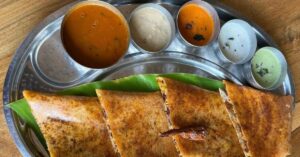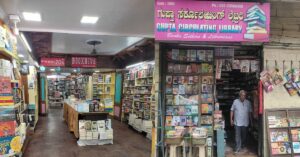Bengaluru Duo Quit Jobs to Make Ancient Indian Cookware Cool Again, Get 90000 Orders
Meera Ramakrishnan, Archish Mathe Madhavan and Varishta Sampath from Bengaluru launched Zishta in 2016 to procure and sell traditional kitchenware and cutlery made from natural elements such as stone, iron, clay, neemwood, and more.
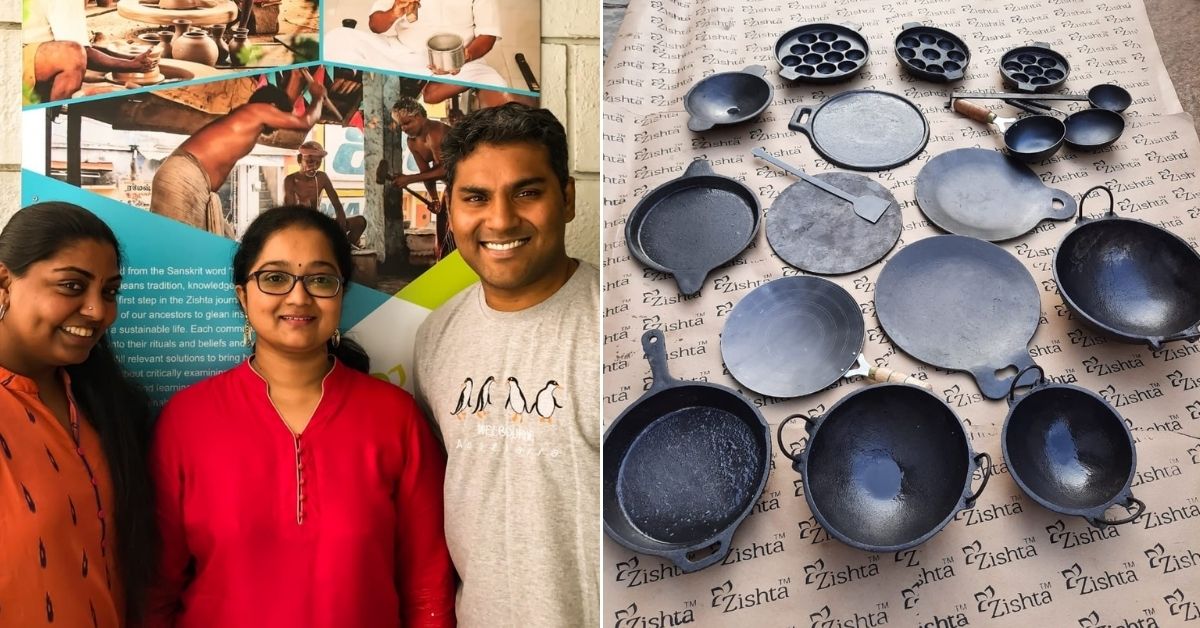
In 2016, after working in the corporate field for more than 20 years, friends and colleagues Meera Ramakrishnan (47) and Archish Mathe Madhavan (38) decided to quit their jobs. They wanted to start a business of their own, but were unsure what it would be. Regardless, they knew it would pertain to anything that was sustainable, useful to every household, and could benefit rural artisans.
This led them to launch Zishta, an organisation that revives traditional kitchenware and cutlery from their places of origin. The duo started by selling three types of utensils such as cast iron skillets, iron dosa pans, and tin cooking bowls sourced from villages in Tamil Nadu.

Today, with a customer base of 90,000, they have a range of 300 different utensils made by 450 artisans across 14 states in India.
“To find these utensils and their makers, we spent six months going door-to-door in every village that is well-known as the utensil’s place of origin. For example, to source authentic coffee filters and davarahs (coffee tumblers), we went to Kumbakonam. However, we noticed that these crafts, which were once thriving, were now almost obsolete due to lack of demand and marketing,” Meera tells The Better India.
A road trip for revival
In January 2016, Archish and his cousin Varishta Sampath (27), the third co-founder, travelled from Bengaluru to various villages in Tamil Nadu. Their aim was to find artisans who were making traditional kitchenware by hand, and request them to make a few for them to sell.
Being south Indians and sharing a mutual love for filter coffee, the duo made their first stop at Kumbakonam, which is well-known for its coffee and the brass vessels used to make and serve the decoction.
“To our surprise, we heard from the locals that the art form had died a decade ago. Now, the brass vessels sold in Kumbakonam and other parts of the state are sourced from manufacturers in Uttar Pradesh. These are not authentic as they are machine-made,” Archish notes.
In many places they visited, they could only meet one or two families who were practising the traditional craft.
A village named Sengottai in Tamil Nadu is famous for making iron dosa pans. Here they were lucky to meet a family practising the craft and witness the process of making it.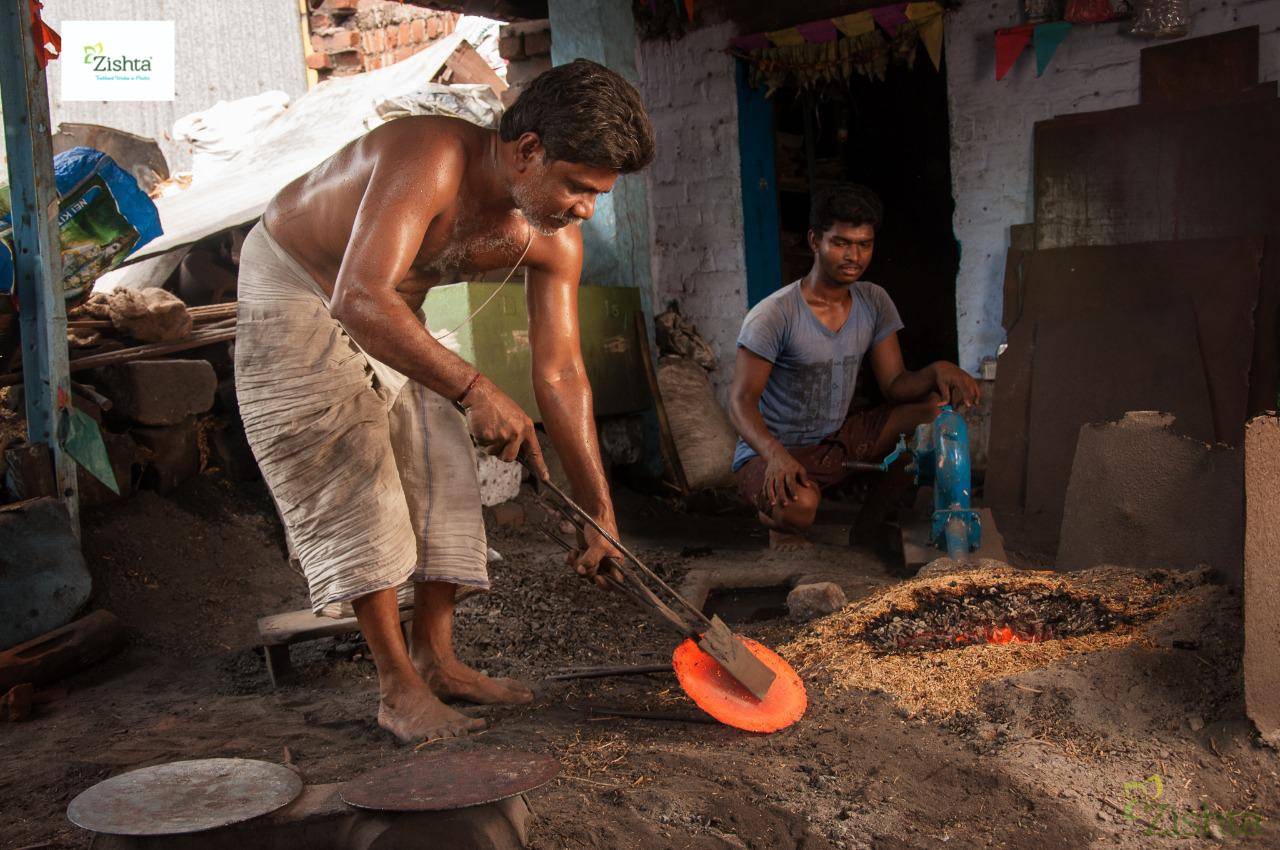
Meera recalls that it took more than five hours for them to make the pan — from heating the iron to flattening it with a hammer, and finally seasoning it with hay and gingelly oil.
“Apart from having a unique process, these vessels also have health benefits. Based on scientific research, consuming food cooked on pure iron skillets allows the ions of the metal to combine with meal. This adds to the iron content in the body,” says Meera, adding that such benefits exist in all traditional kitchenware including soapstone, copper, clay utensils and more.
While the trio managed to locate artisans still engaged in his craft, they were unable to convince them to produce in bulk for them to resell. Artisans were reluctant because making these vessels was time and resource-consuming. Moreover, they were worried their efforts would go to waste if the products were not sold.
“Instead of convincing them by mere words, we purchased a few utensils from each village that we visited and decided to resell them. We wanted to prove that there is a market for their craft,” says Meera, adding that the artisans were not even willing to courier the vessels to their residence.
So, they loaded the car with heavy utensils and returned to Bengaluru.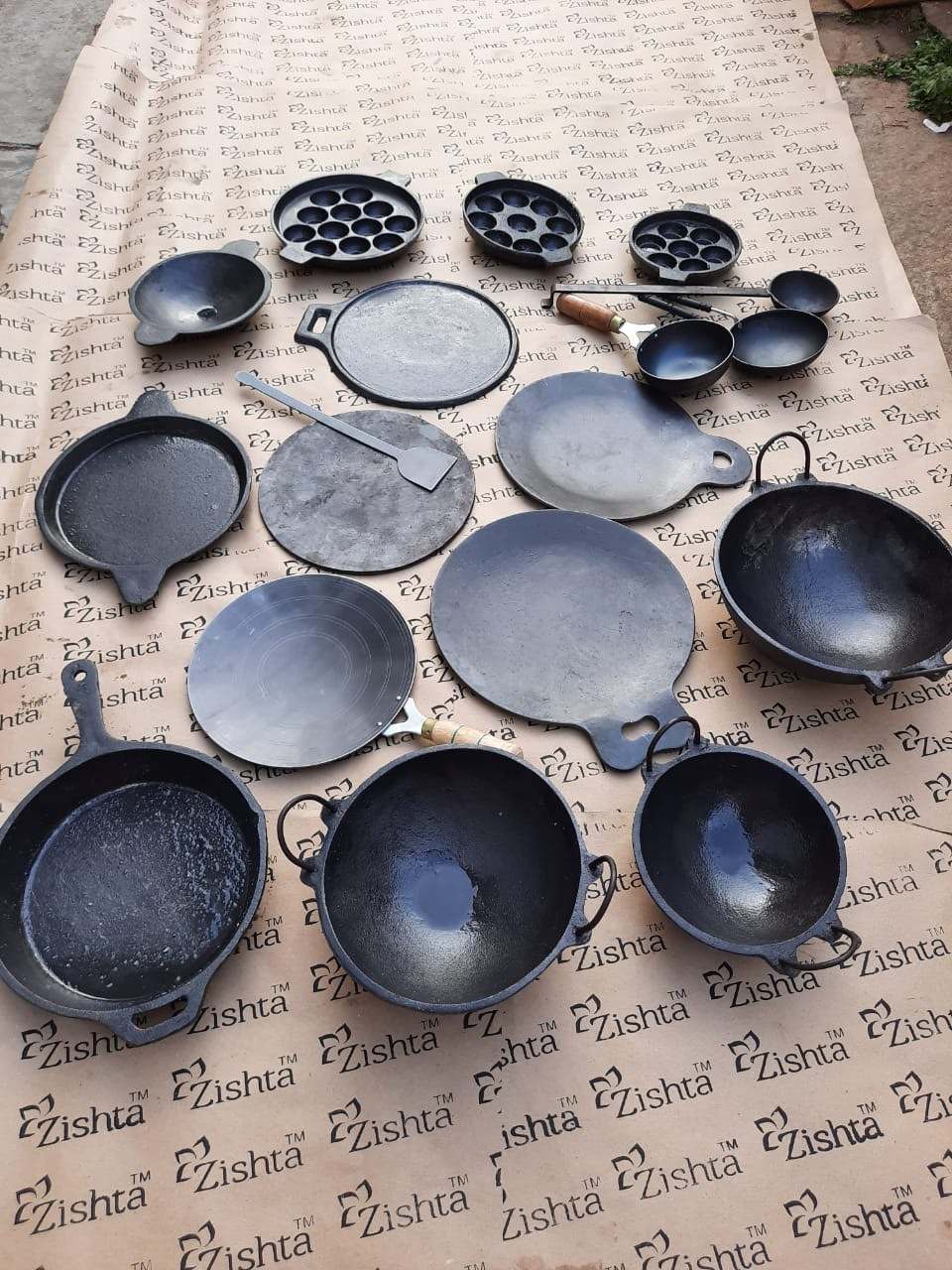
Soft launch of the business
Before putting the cookware up for sale, the team conducted a few tests. The utensils were sent to a NABL-accredited laboratory in Bengaluru to conduct RoHS (Restriction of certain Hazardous Substances) tests. This determines whether there are harmful chemicals such as mercury in the utensils.
“We did not want to sell any product which we would not use to cook for our families. Even now, only the products which pass the RoHS tests and comply with the guidelines are listed on our website,” says Meera.
In July 2016, the three officially launched their business, Zishta, and set up their office in a garage lent to them by a family member. Here, they stocked the products and packaged them.
With a positive response from the tests, three items – cast iron skillets, iron dosa pans, and eeya sombu (tin vessel used to make rasam)- were taken to an event to be marketed.
“To our shock, the stock we had for the three-day event sold out on the first day. We did not have any more to stock as we would have to go to the villages again and get more,” says Meera.
Expanding their business
Apart from visiting villages in Tamil Nadu, the trio travelled to 14 other states including Gujarat, Telangana and Manipur to source traditional kitchenware.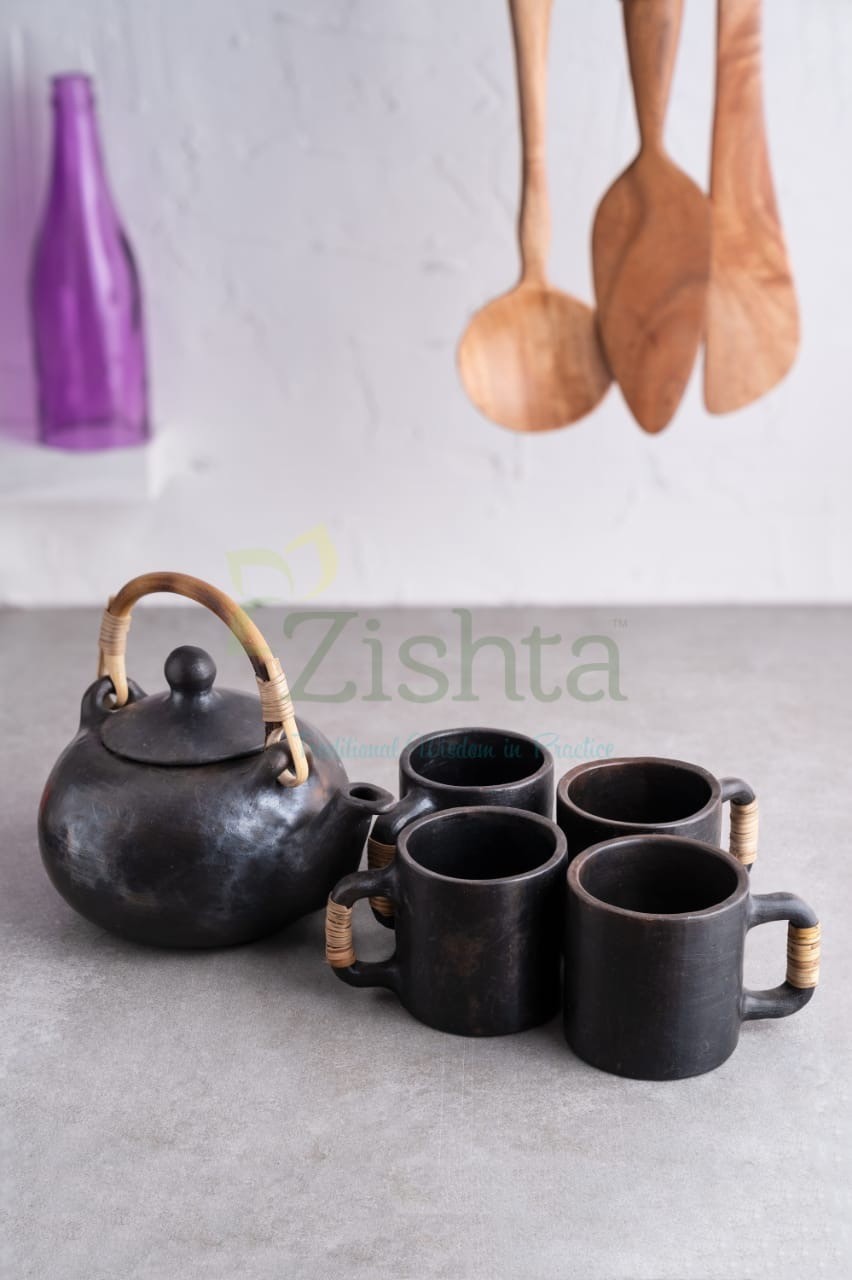
“Since traditional davarahs and coffee filters are not made in Kumbakonam, we got them handmade in pure brass with the help of artisans in Maharashtra. These artisans are from the lineage of a family who made armours and weapons for King Shivaji and his army,” says Meera.
Soon, their customer base started to expand, and they even received orders from other countries including the USA, UAE, and Canada.
Seeing the demand and receiving a steady income for their craft made the artisans more prompt with making utensils. They also agreed to send the products to Bengaluru via courier or local logistics partners.
If you wish to know more visit their website and follow them for updates on Facebook or Instagram.
Edited by Divya Sethu
This story made me
- 97
- 121
- 89
- 167
Tell Us More
We bring stories straight from the heart of India, to inspire millions and create a wave of impact. Our positive movement is growing bigger everyday, and we would love for you to join it.
Please contribute whatever you can, every little penny helps our team in bringing you more stories that support dreams and spread hope.






